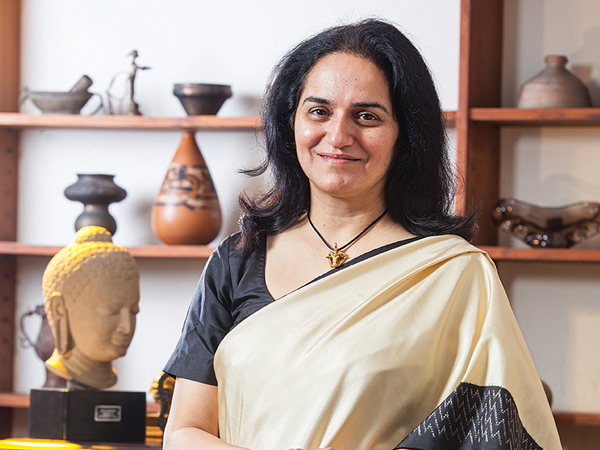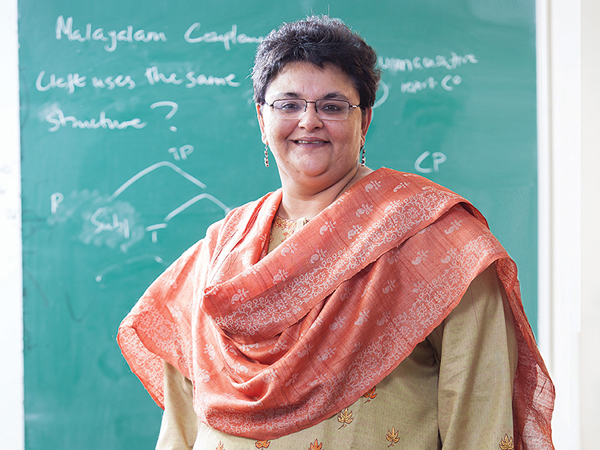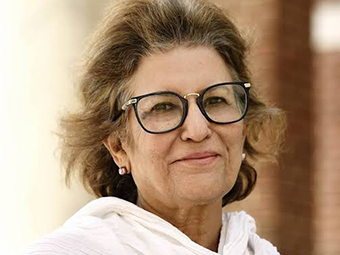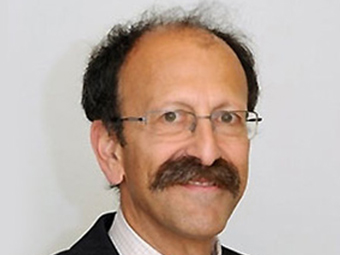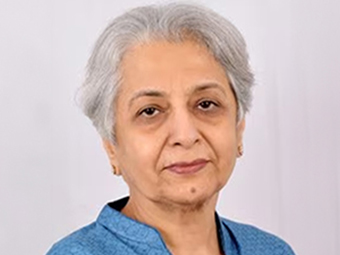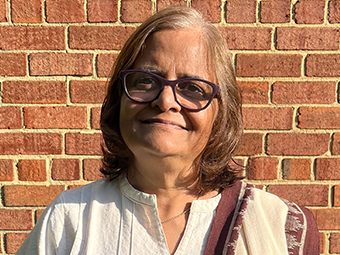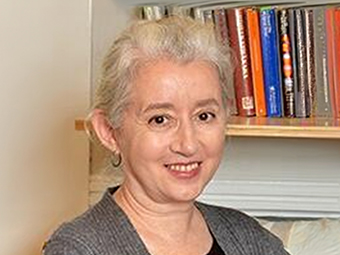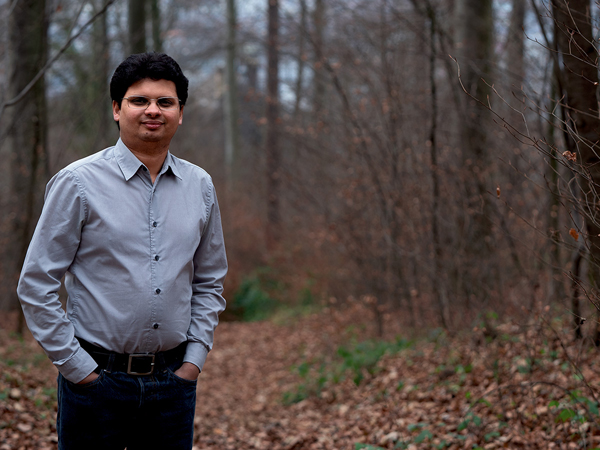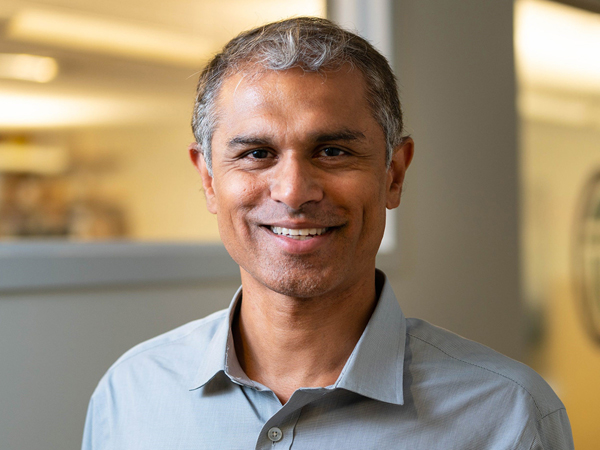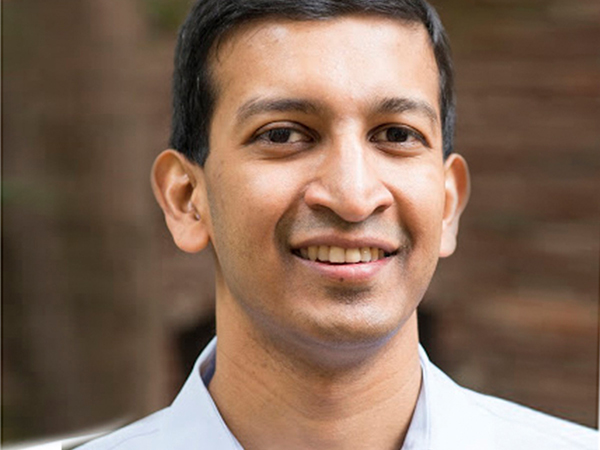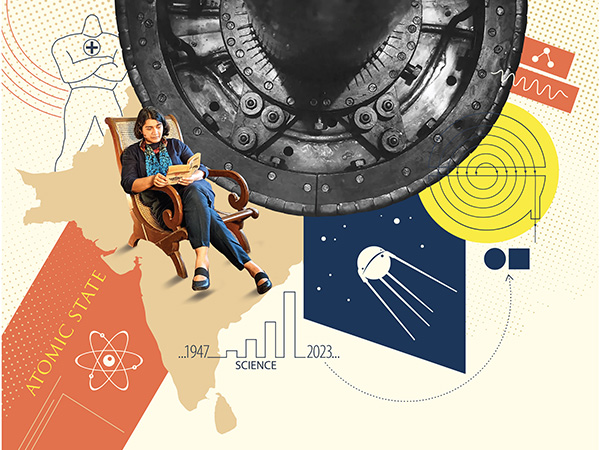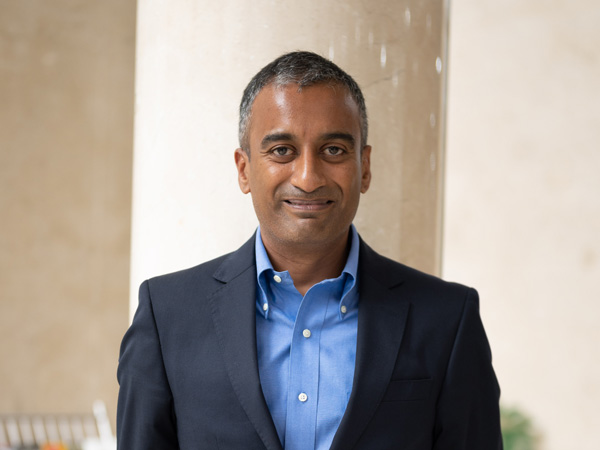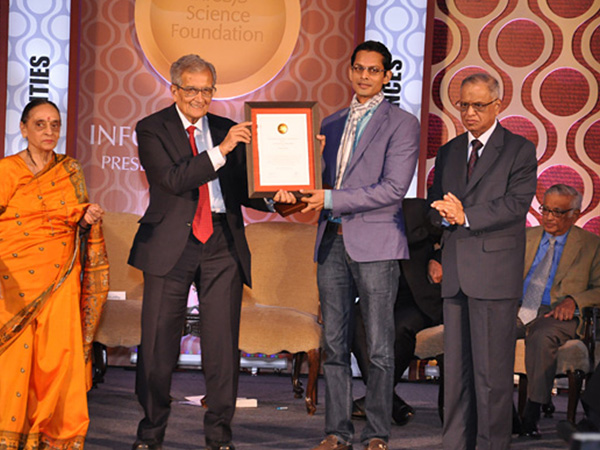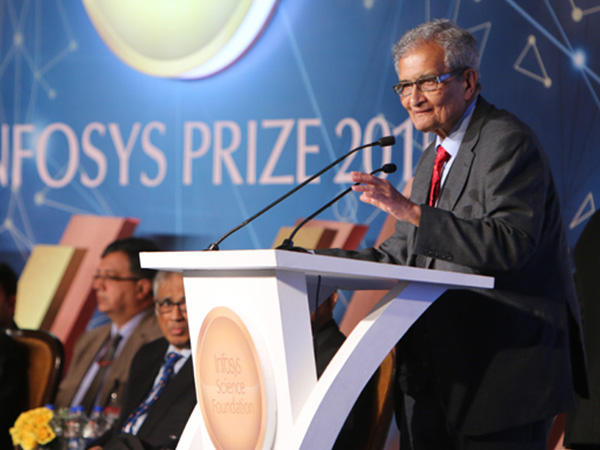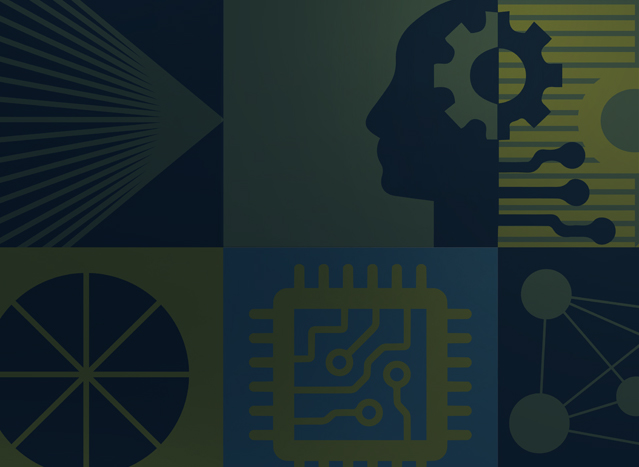
Humanities and Social Sciences
The humanities and social sciences examine the cultural, historical, philosophical, social and cultural aspects of human behavior. The Infosys Prize in Humanities & Social Sciences awards work in literary studies, history, art history, linguistics, law (including jurisprudence), archaeology, anthropology, political science (including international relations), psychology, and sociology.
In 2024, Humanities and Social Sciences were combined into one category, and Economics is a separate category. Please visit these links to view previous laureates: Humanities (2012-2023), Social Sciences (2009-2023).
Laureates
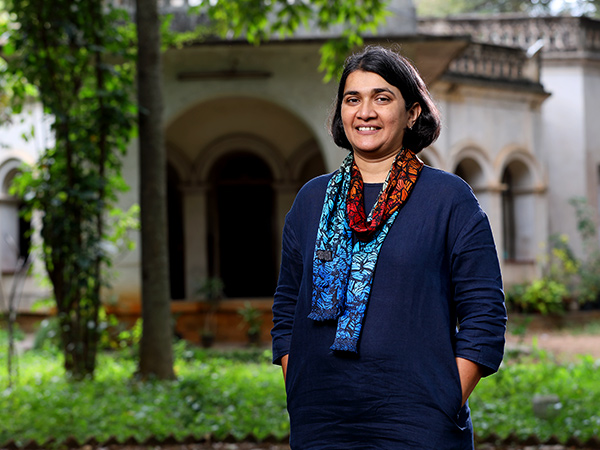
Humanities 2022
Sudhir Krishnaswamy
Vice Chancellor and Director, Department of Professional and Continuing Education, National Law School of India University, Bengaluru
Read More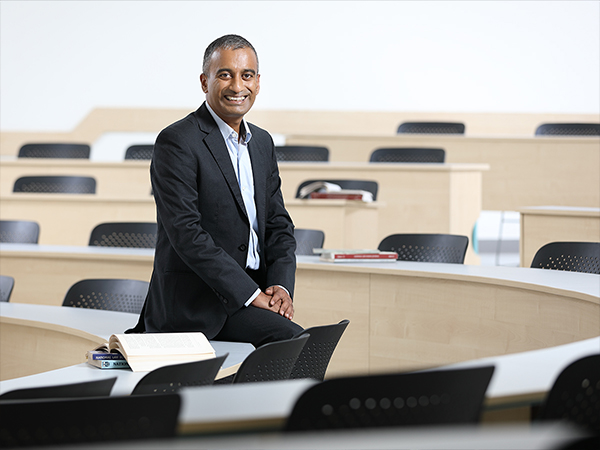
Humanities 2021
Ângela Barreto Xavier
Senior Researcher, Institute of Social Sciences, University of Lisbon, Portugal
Read More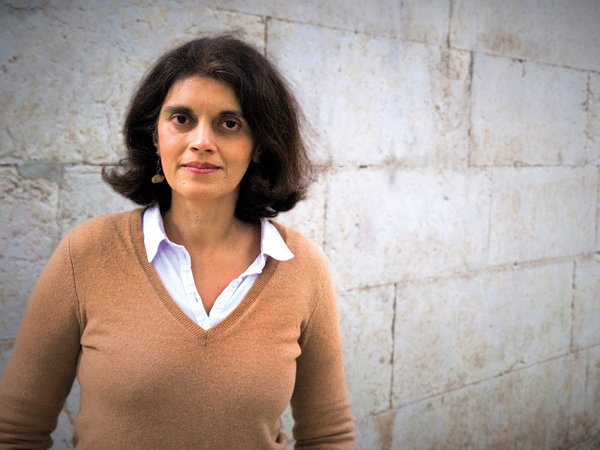
Humanities 2020
Prachi Deshpande
Associate Professor of History, Centre for Studies in Social Sciences, Kolkata
Read More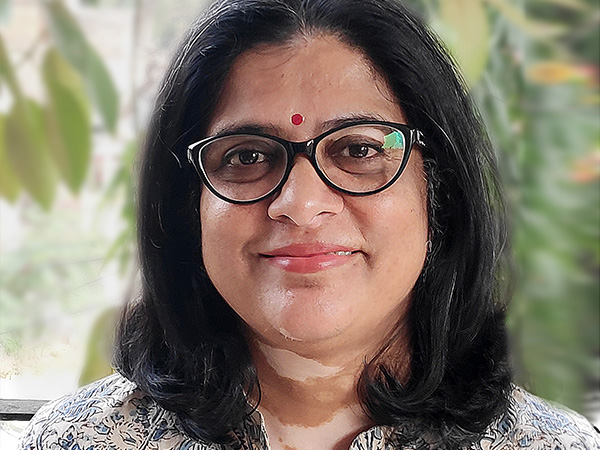
Humanities 2019
Manu V. Devadevan
Assistant Professor, School of Humanities and Social Sciences, Indian Institute of Technology, Mandi
Read More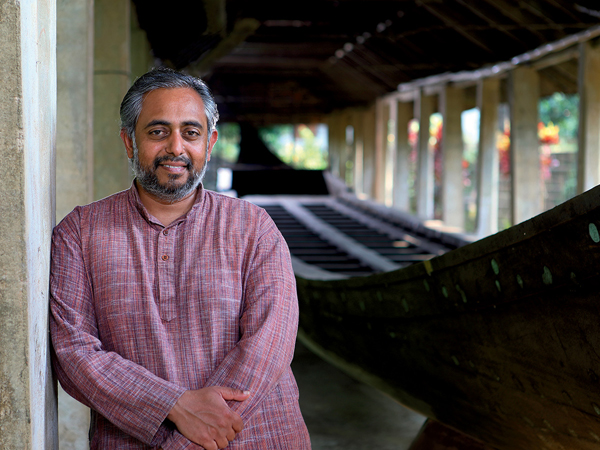
Humanities 2018
Kavita Singh
Professor and Dean, School of Arts & Aesthetics, Jawaharlal Nehru University, New Delhi
Read More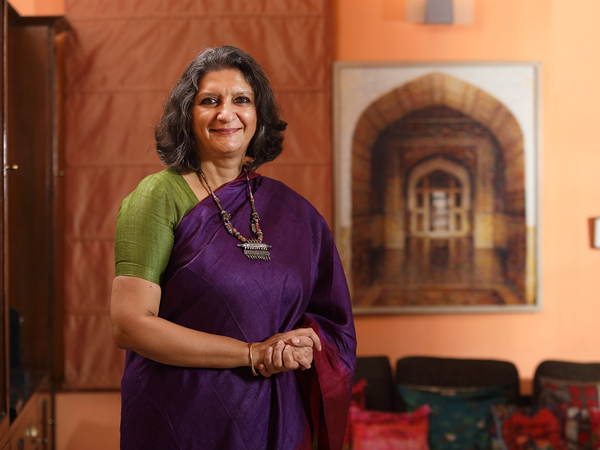
Humanities 2017
Ananya Jahanara Kabir
Professor of English Literature, Department of English, King’s College London, UK
Read More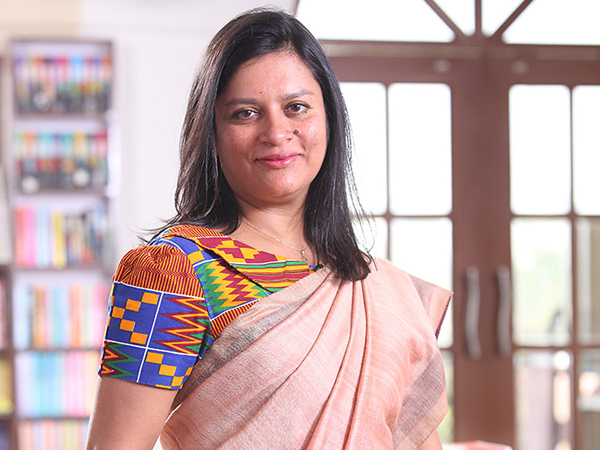
Humanities 2016
Sunil Amrith
Mehra Family Professor of South Asian Studies, Professor of History, History Department, Harvard University, US
Read More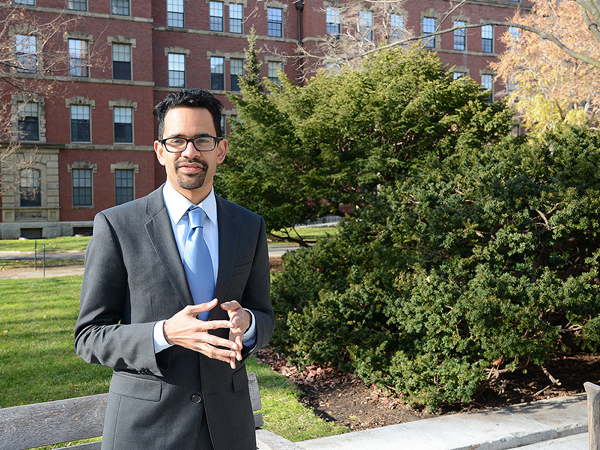
Humanities 2015
Jonardon Ganeri
Global Network Professor of Philosophy, New York University, New York and Visiting Professor, Department of Philosophy, King’s College, London
Read More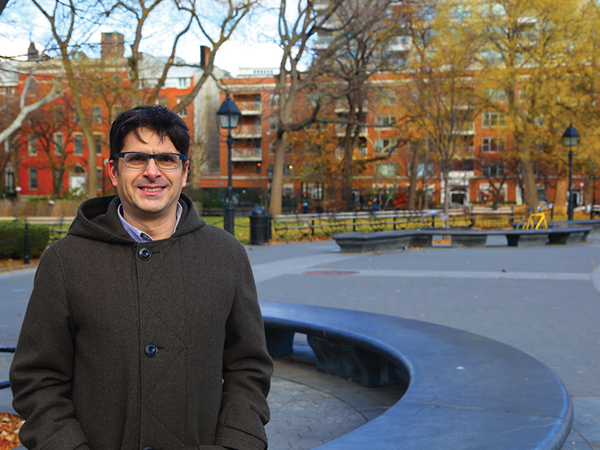
Humanities 2014
Shamnad Basheer
Founder and Managing Trustee, Increasing Diversity by Increasing Access, and Founder, SpicyIP, India
Read More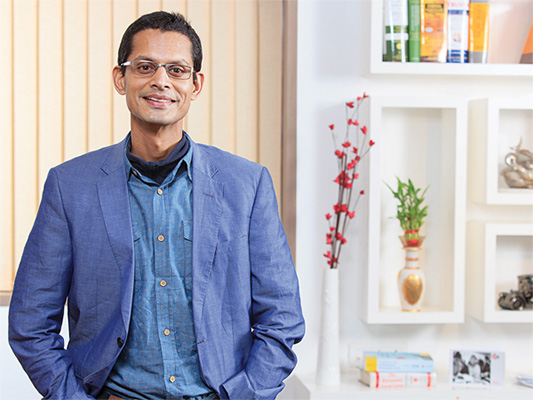
Humanities 2012
Sanjay Subrahmanyam
Distinguished Professor of History, & Navin and Pratima Doshi Endowed Chair, Pre-Modern Indian History, University of California at Los Angeles, USA
Read MoreHumanities 2012
Amit Chaudhuri
Professor of Contemporary Literature at University of East Anglia, Norwich, UK
Read More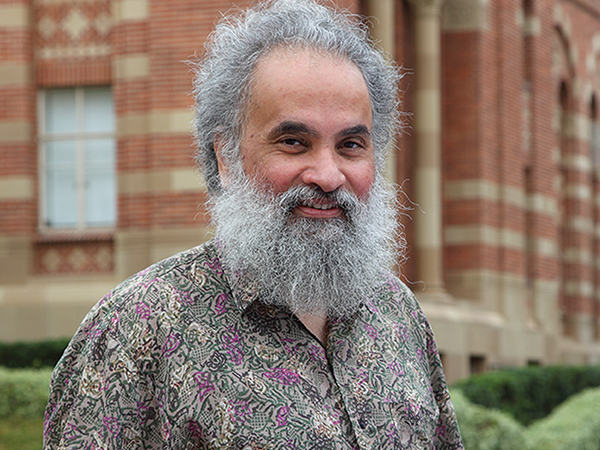
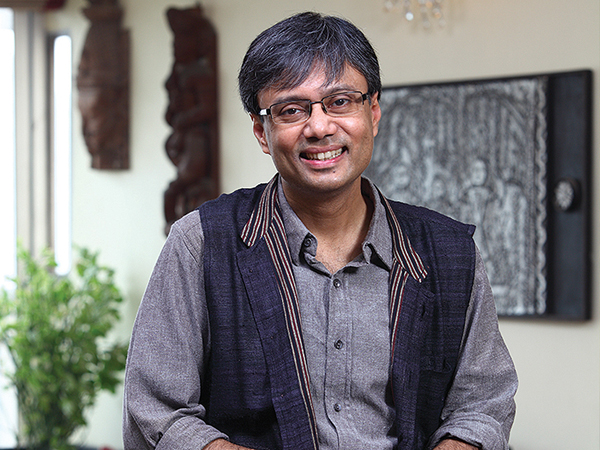
Jury
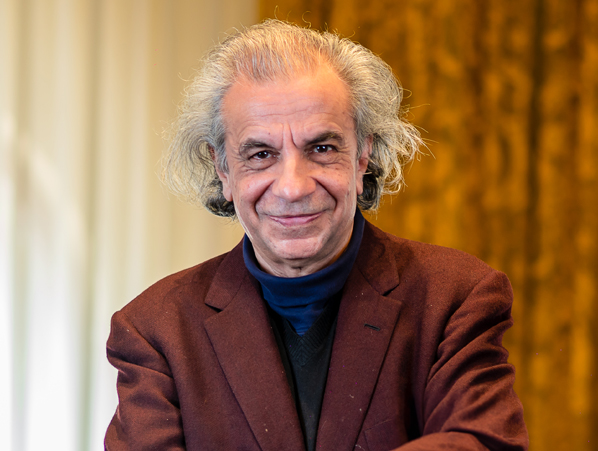
Akeel Bilgrami
Sidney Morgenbesser Professor of Philosophy; Professor, Committee on Global Thought, Columbia University
View More
Akeel Bilgrami
Sidney Morgenbesser Professor of Philosophy; Professor, Committee on Global Thought, Columbia University
View MoreHumanities and Social Sciences 2025
Prof. Akeel Bilgrami got a first degree in English Literature from Elphinstone College Bombay and then went as a Rhodes Scholar to Oxford University where he studied Philosophy, Politics, and Economics. He has a Ph.D. in Philosophy from the University of Chicago. He is the author of the books Belief and Meaning (Blackwell), Self-Knowledge and Resentment (Harvard University Press) and Secularism, Identity, and Enchantment (Harvard University Press, and in India Permanent Black Press) and Capital, Culture, and the Commons (Juxta Press and in India Permanent Black Press). He is currently writing a book on Gandhi's Philosophy as well as a longer work on the nature of practical reason.
Prof. Bilgrami teaches regular courses and seminars on a variety of subjects including The Philosophy of Language and Mind, Politics and Rationality, Religion and Politics, Cultural Identity and Modernity, and Gandhi’s thought. He is the President of the Trustees and the Executive Editor of The Journal of Philosophy. At Columbia University, Bilgrami has been the Chairman of the Philosophy Department from 1994-98, the Director of the Heyman Centre for the Humanities from Dec 2003-2010, and the Director of the South Asian Institute from 2013-2016. Akeel Bilgrami was elected to be a Cullman Fellow at the New York Public Library, held the Radhakrishnan Chair in India, visiting professorships at Oxford University and Yale University, and has been the recipient of fellowships and grants from the Mellon Foundation, Ford Foundation, National Endowment of the Humanities, as well as the Luce Foundation.
Prof. Veena Das is a research professor at Johns Hopkins University. Before joining Johns Hopkins in 2000, Prof. Das taught at Delhi University for 30 years.
Prof. Das is a Fellow of the American Academy of Arts and sciences, British Academy and Academy of Scientists from Developing Counties. Among her many awards are the John Simon Guggenheim Fellowship in 2009, the Anders Retzius Award of the Swedish Society of Anthropology and Geography in 1995, and the Ghurye Award in 1977. Das was awarded the Nessim Habif Prize by the University of Geneva (2014), Sudhindra Chakrobarty Award, University of Calcutta (2020), and GBD Eminent Scholar Recognition by the International Studies Association (2021).
Veena Das’s published works include Life and Words: Violence and the Descent into the Ordinary (2007), Affliction: Health, Disease, Poverty (2015), Textures of the Ordinary, Doing Anthropology after Wittgenstein (2020), Slum Acts (2022) and three co-edited volumes, The Ground Between: Anthropologists Engage Philosophy (2014), Living and Dying in the Contemporary World: A Compendium (2015) and Politics of the Urban Poor (Special Issue, co-edited, 2015)
Kalpana Kannabiran is a sociologist and legal scholar based in Hyderabad, India. Over the past three decades, Prof. Kannabiran has co-founded and worked with Asmita Resource Centre for Women (1991-2021), was part of the founding faculty of NALSAR University of Law, Hyderabad, where she taught sociology and law (1999-2009), and retired as Professor and Regional Director, Council for Social Development, Hyderabad (2011-2021). She is currently Distinguished Professor, Council for Social Development, New Delhi and has completed a three-year term as Civil Society Advisory Governor (Asia Region), Commonwealth Foundation, London, January 2020—December 2022.
Prof. Kannabiran received her Ph.D. in sociology from Jawaharlal Nehru University, and an L.L.M. from Postgraduate College of Law, Osmania University. She was Rockefeller Humanist-in-Residence at the Women’s Studies Program, Hunter College, City University of New York in 1992-93, and is recipient of the VKRV Rao Prize for Social Science Research (2003) and the Amartya Sen Award for Distinguished Social Scientists (2012) for her work in the field of law.
Between 2007 and 2008, she was member of the Expert Group on the Equal Opportunity Commission, Government of India and the Expert Group on Legal Education Reform in Kerala, Government of Kerala, both chaired by the late Prof. N.R. Madhava Menon.
Kalpana Kannabiran has published widely across the fields of law, gender and sexuality studies, and sociology. Her widely acclaimed book Tools of Justice: Non-Discrimination and the Indian Constitution (Routledge, 2012) was the first to open out a comprehensive, interdisciplinary, intersectional exploration of the fundamental right to non-discrimination in India. A compilation of her public writing in The Hindu, The Wire, and Scroll is published as Law, Justice and Human Rights in India: Short Reflections (Orient BlackSwan, 2021). She has translated and edited The Speaking Constitution: A Sisyphean Life in Law by K.G. Kannabiran (HarperCollins 2022), and has edited Law, Justice and Society: Selected Works by Upendra Baxi, Volume 3: Law and Society (Oxford University Press, 2025).
Prof. David Shulman is an Indologist whose research spans across the history of religion in South India, Indian poetics, Tamil Islam, Dravidian linguistics, and Carnatic music. Prof. Shulman is also a published poet in Hebrew, a literary critic, a cultural anthropologist who has authored/co-authored more than 20 books. Some of his work include More than Real: A History of the Imagination in South India (Harvard University Press, 2012); Tamil: A Biography (Harvard University Press, 2016); and Introspection and Insight: South Indian Minds in the Early Modern Age (Primus Publications, 2022).
David Shulman graduated from The Hebrew University in 1971 with a B.A. in Islamic History followed by a Doctorate in Tamil and Sanskrit, with a dissertation on 'The Mythology of the Tamil Saiva Talapuranam', at the School of Oriental and African Studies, University of London, 1976.
Prof. Shulman’s list of awards include MacArthur Fellowship (1987), Rothschild Prize (2004), The EMET Prize for Art, Science and Culture (2010), and The Israel Prize (2016) for his research on the literature and culture of southern India.
Niraja Gopal Jayal is the Avantha Chair at the King’s India Institute at King’s College London. From 2019-2023 she was also Centennial Professor at The London School of Economics in the Department of Gender Studies. Prof. Jayal was a professor at the Centre for the Study of Law and Governance at Jawaharlal Nehru University prior to joining King’s College London in 2021.
Prof. Jayal’s areas of research include citizenship, democracy and welfare in India. Her published works include the book Citizenship and Its Discontents (2013), which won the Ananda Kentish Coomaraswamy Prize of the Association of Asian Studies in 2015. Prof. Jayal’s other books include Democracy and the State: Welfare, Secularism and Development in Contemporary India (1999); and Representing India: Ethnic Diversity and the Governance of Public Institutions (2006). She has co-edited The Oxford Companion to Politics in India, and edited, among several others, Democracy in India (2001) and Re-Forming India: The Nation Today. (2019) Her most recent book is Citizenship Imperilled: India’s Fragile Democracy (2021). She is the Co-Editor of The Cambridge Companion to the Constitution of India (forthcoming, 2025).
Niraja Jayal delivered the Radhakrishnan Memorial Lectures at All Souls College, Oxford in 2009, and was Vice-President of the American Political Science Association (2011-12). Prof. Jayal has held visiting appointments at Princeton University, King’s College, London, and the EHESS, Paris.
Prachi Deshpande is Associate Professor of History at the Centre for Studies in Social Sciences in Kolkata, India. Dr. Deshpande’s research focuses on social and cultural history of historiography, language, and regional identities, particularly of Western India. Dr. Deshpande has published scholarly works in English and Marathi. Her first book Creative Pasts: Historical Memory and Identity in Western India, 1700-1960 (2007) examined the emergence of modern history-writing practices in the Marathi-speaking areas of western India, and the importance of historical memory in shaping an enduring Maharashtrian regional identity.
Prachi Deshpande’s second book, Scripts of Power: Writing, Language Practices, and Cultural History in Western India (2023), examines changing relationships between writing, script and language through a focus on the cursive Modi script, and underlines the importance of the material world of writing to the modern linguistic state. Dr. Deshpande's essays and book chapters include "The Marathi kaulnāmā: Property, Sovereignty and Documentation in a Persianate form," in the Journal of the Economic and Social History of the Orient (2021); “The Writerly Self: Discourses of Literate Practice in Early Modern Western India,” in Indian Economic and Social History Review (2016); and “Scripting the Cultural History of Language: Modi in the Colonial Archive,” in Partha Chatterjee, Tapati Guha-Thakurta and Bodhisattva Kar, eds. New Cultural Histories of India (2014). Dr. Prachi Deshpande is 2020 laureate of the Infosys Prize in Humanities.
Humanities and Social Sciences 2024
Prof. Akeel Bilgrami got a first degree in English Literature from Elphinstone College Bombay and then went as a Rhodes Scholar to Oxford University where he studied Philosophy, Politics, and Economics. He has a Ph.D. in Philosophy from the University of Chicago. He is the author of the books Belief and Meaning (Blackwell), Self-Knowledge and Resentment (Harvard University Press) and Secularism, Identity, and Enchantment (Harvard University Press, and in India Permanent Black Press) and Capital, Culture, and the Commons (Juxta Press and in India Permanent Black Press). He is currently writing a book on Gandhi's Philosophy as well as a longer work on the nature of practical reason.
Prof. Bilgrami teaches regular courses and seminars on a variety of subjects including The Philosophy of Language and Mind, Politics and Rationality, Religion and Politics, Cultural Identity and Modernity, and Gandhi’s thought. He is the President of the Trustees and the Executive Editor of The Journal of Philosophy. At Columbia University, Bilgrami has been the Chairman of the Philosophy Department from 1994-98, the Director of the Heyman Centre for the Humanities from Dec 2003-2010, and the Director of the South Asian Institute from 2013-2016. Akeel Bilgrami was elected to be a Cullman Fellow at the New York Public Library, held the Radhakrishnan Chair in India, visiting professorships at Oxford University and Yale University, and has been the recipient of fellowships and grants from the Mellon Foundation, Ford Foundation, National Endowment of the Humanities, as well as the Luce Foundation.
Kalpana Kannabiran is a sociologist and legal scholar based in Hyderabad, India. Over the past three decades, Prof. Kannabiran has co-founded and worked with Asmita Resource Centre for Women (1991-2021), was part of the founding faculty of NALSAR University of Law, Hyderabad, where she taught sociology and law (1999-2009), and retired as Professor and Regional Director, Council for Social Development, Hyderabad (2011-2021). She is currently Distinguished Professor, Council for Social Development, New Delhi and has completed a three-year term as Civil Society Advisory Governor (Asia Region), Commonwealth Foundation, London, January 2020—December 2022.
Prof. Kannabiran received her Ph.D. in sociology from Jawaharlal Nehru University, and an L.L.M. from Postgraduate College of Law, Osmania University. She was Rockefeller Humanist-in-Residence at the Women’s Studies Program, Hunter College, City University of New York in 1992-93, and is recipient of the VKRV Rao Prize for Social Science Research (2003) and the Amartya Sen Award for Distinguished Social Scientists (2012) for her work in the field of law.
Between 2007 and 2008, she was member of the Expert Group on the Equal Opportunity Commission, Government of India and the Expert Group on Legal Education Reform in Kerala, Government of Kerala, both chaired by the late Prof. N.R. Madhava Menon.
Kalpana Kannabiran has published widely across the fields of law, gender and sexuality studies, and sociology. Her widely acclaimed book Tools of Justice: Non-Discrimination and the Indian Constitution (Routledge, 2012) was the first to open out a comprehensive, interdisciplinary, intersectional exploration of the fundamental right to non-discrimination in India. A compilation of her public writing in The Hindu, The Wire, and Scroll is published as Law, Justice and Human Rights in India: Short Reflections (Orient BlackSwan, 2021). She has translated and edited The Speaking Constitution: A Sisyphean Life in Law by K.G. Kannabiran (HarperCollins 2022), and has edited Law, Justice and Society: Selected Works by Upendra Baxi, Volume 3: Law and Society (Oxford University Press, forthcoming 2024).
Prof. David Shulman is an Indologist whose research spans across the history of religion in South India, Indian poetics, Tamil Islam, Dravidian linguistics, and Carnatic music. Prof. Shulman is also a published poet in Hebrew, a literary critic, a cultural anthropologist who has authored/co-authored more than 20 books. Some of his work include More than Real: A History of the Imagination in South India (Harvard University Press, 2012); Tamil: A Biography (Harvard University Press, 2016); and Introspection and Insight: South Indian Minds in the Early Modern Age (Primus Publications, 2022).
David Shulman graduated from The Hebrew University in 1971 with a B.A. in Islamic History followed by a Doctorate in Tamil and Sanskrit, with a dissertation on 'The Mythology of the Tamil Saiva Talapuranam', at the School of Oriental and African Studies, University of London, 1976.
Prof. Shulman’s list of awards include MacArthur Fellowship (1987), Rothschild Prize (2004), The EMET Prize for Art, Science and Culture (2010), and The Israel Prize (2016) for his research on the literature and culture of southern India.
Prachi Deshpande is Associate Professor of History at the Centre for Studies in Social Sciences in Kolkata, India. Dr. Deshpande’s research focuses on social and cultural history of historiography, language, and regional identities, particularly of Western India. Dr. Deshpande has published scholarly works in English and Marathi. Her first book Creative Pasts: Historical Memory and Identity in Western India, 1700-1960 (2007) examined the emergence of modern history-writing practices in the Marathi-speaking areas of western India, and the importance of historical memory in shaping an enduring Maharashtrian regional identity.
Prachi Deshpande’s second book, Scripts of Power: Writing, Language Practices, and Cultural History in Western India (2023), examines changing relationships between writing, script and language through a focus on the cursive Modi script, and underlines the importance of the material world of writing to the modern linguistic state. Dr. Deshpande's essays and book chapters include "The Marathi kaulnāmā: Property, Sovereignty and Documentation in a Persianate form," in the Journal of the Economic and Social History of the Orient (2021); “The Writerly Self: Discourses of Literate Practice in Early Modern Western India,” in Indian Economic and Social History Review (2016); and “Scripting the Cultural History of Language: Modi in the Colonial Archive,” in Partha Chatterjee, Tapati Guha-Thakurta and Bodhisattva Kar, eds. New Cultural Histories of India (2014). Dr. Prachi Deshpande is 2020 laureate of the Infosys Prize in Humanities.
Janet Gyatso is a religious studies scholar who is currently the Hershey Professor of Buddhist Studies at the Harvard Divinity School. Prof. Janet Gyatso's research interests are in Buddhism and its relationship to Tibetan and South Asian civilizations.
Prof. Gyatso’s published works include In the Mirror of Memory: Reflections on Mindfulness and Remembrance in Indian and Tibetan Buddhism (1992); Apparitions of the Self: The Secret Autobiographies of a Tibetan Visionary (1998); Women of Tibet (2005); and Being Human in a Buddhist World: An Intellectual History of Medicine in Early Modern Tibet (2016).
Janet Gyatso was president of the International Association of Tibetan Studies from 2000 to 2006, and co-chair of the Buddhism Section of the American Academy of Religion from 2004 to 2010. She was elected to the American Academy of Arts and Science in 2018.
Niraja Gopal Jayal is the Avantha Chair at the King’s India Institute at King’s College London. From 2019-2023 she was also Centennial Professor at The London School of Economics in the Department of Gender Studies. Prof. Jayal was a professor at the Centre for the Study of Law and Governance at Jawaharlal Nehru University prior to joining King’s College London in 2021.
Prof. Jayal’s areas of research include citizenship, democracy and welfare in India. Her published works include the book Citizenship and Its Discontents (2013), which won the Ananda Kentish Coomaraswamy Prize of the Association of Asian Studies in 2015. Prof. Jayal’s other books include Democracy and the State: Welfare, Secularism and Development in Contemporary India (1999); and Representing India: Ethnic Diversity and the Governance of Public Institutions (2006). She has co-edited The Oxford Companion to Politics in India, and edited, among several others, Democracy in India (2001) and Re-Forming India: The Nation Today. (2019) Her most recent book is Citizenship Imperilled: India’s Fragile Democracy (2021). She is the Co-Editor of The Cambridge Companion to the Constitution of India (forthcoming, 2025).
Niraja Jayal delivered the Radhakrishnan Memorial Lectures at All Souls College, Oxford in 2009, and was Vice-President of the American Political Science Association (2011-12). Prof. Jayal has held visiting appointments at Princeton University, King’s College, London, and the EHESS, Paris.

